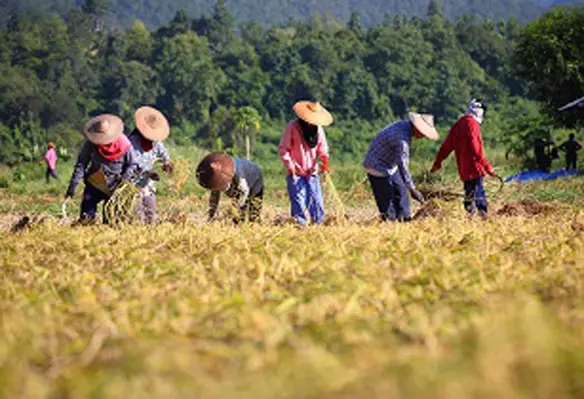In efforts to enhance agricultural productivity, improve farmers profits, and reduce greenhouse gas (GHG) emissions in the sector region wide, the Asian Productivity Organisation (APO) announced the designation of the National Agriculture and Food Research Organisation (NARO) of Japan as its new Centre of Excellence on Climate-smart Agriculture (COE on CSA)
This is a result of the long-term partnership between the two institutions in distributing knowledge in the focus area of the new COE.
GHG emissions due to agriculture, livestock operations, and land use are estimated to account for 24% of the global total. The introduction of climate-friendly agricultural practices, combined with the adoption of smart technologies can bring multiple benefits in the form of higher productivity, increased agricultural and food production, and reduced GHG emissions.
The COE on CSA will focus on the deployment of climate change mitigation and adaptation technologies, expertise, and frameworks for low-carbon rice, wheat, and soybean production as staple foods in the Asia-Pacific. Specific focus areas will be sharing technical knowledge and methods to reduce methane emissions from paddy fields; adoption of agricultural weather data systems for rice, wheat, and soybean production; web-based soil carbon sequestration visualisation tools for GHG reductions in various crops such as rice, wheat, and soybean; application of biochar and development of carbon credit methodologies; and water management practices in rice cultivation and treatment of livestock waste.
The COE on CSA will start its activities from April 2023, including a need and readiness assessment of APO members for implementing climate-change mitigation and adaptation technologies, two international conferences on CSA and other COE focus areas, and pilot projects to apply technologies developed by the COE on CSA starting from 2024 as well as seminars, study missions, workshops, and on-site training for customising the knowledge to meet local needs in APO members.
The COE on CSA may provide technical knowledge and skills such as technologies to reduce methane emissions from paddy fields; agricultural weather data systems for rice, wheat, and soybean production; web-based soil carbon sequestration visualisation tool for greenhouse gas reduction in various crops such as rice, wheat, and soybean.




